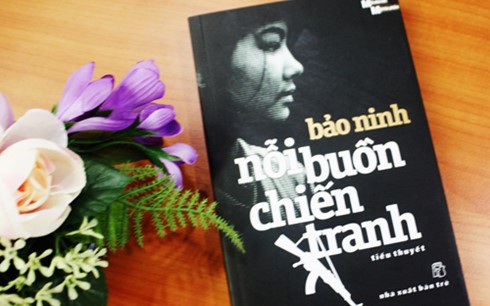(VOVworld)- Over the past 3 decades, Vietnamese literature has seen some remarkable contributions by the post-war generation of writers. Those who grew up after 1975 have led more comfortable lives and have new view of reform.
 |
Bao Ninh's novel "Sorrow of War" is a prominent work during the renewal period
|
Vietnam’s renewal since 1986 has reshaped national culture and inspired artists’ creativity. Beginning with a novel by Nguyen Minh Chau, Vietnamese literature since 1975 has portrayed the reality of life and human destinies. Nguyen Huy Thiep published a series of short stories, of which “Tuong ve huu” (Retired General) became a phenomenon. Other prominent writers include Bao Ninh, who wrote Noi buon chien tranh (Sorrow of War) and Du Thi Hoan who wrote Loi nho (Small Path). These works embodied a different view of life and the writing style broke with traditional patterns and principles. The themes are about people with their complicated contradictions and the inner self. Many literary works awakened the public to the problems of economic reforms and changes of social ethics through a wisely-analytical and critical attitude. Critic Ngo Van Gia elaborates on what literature has achieved during the renewal process: “The biggest achievement was a change of perception of human lives. Authors adopted a completely new writing style and became famous. They shifted from war-time aesthetics to peace-time aesthetics, from praising the war of resistance to focusing on human destinies, universal values, and questioning and engaging reality”.
The renewal period saw the emergence of female writers, who breathed a new life into literature with their feminine sensitivity. Critic Chu Van Son said: “Female writers and poets influenced the renewal process. They created the values of prose and poetry during that period”.
Dr. Ho The Ha of the Philology Department of Hue University of Science said that following the trend of reform, democratization and integration, the writers have had a stronger voice in society: “That’s a change of thinking based on the change in social life. When literature is empowered to speak out for freedom and democracy, it can achieve the goal of reflecting reality for the people”.
If, during the war time, a generation of writers basically fulfilled their historical responsibility, after the war the subsequent generation helped form an eventful literary period, winning the hearts of the audience.